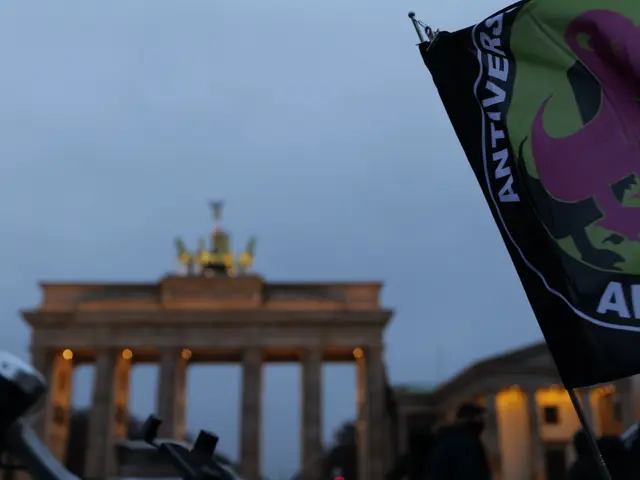Digital Currencies' Market Structure to Receive Legislative Clarification by Congress
The Digital Asset Market Clarity Act (CLARITY) is a significant piece of legislation currently making its way through the U.S. Senate. If passed, this bill aims to provide a comprehensive regulatory framework for digital assets, offering clarity and certainty to the cryptocurrency market.
Key Provisions of the Clarity Act
The Clarity Act divides regulatory authority between the Commodity Futures Trading Commission (CFTC) and the Securities and Exchange Commission (SEC). The CFTC would generally regulate "digital commodities"—digital assets relying on blockchain for value and meeting specific requirements—while the SEC would oversee "restricted digital assets" and related activities.
The Act creates a provisional registration regime for digital commodity brokers, dealers, and exchanges, allowing market participants to operate while the SEC and CFTC finalize detailed rules. Assets initially sold as investment contracts may transition to "digital commodity" status if the underlying blockchain network becomes sufficiently decentralized over time.
For a digital commodity to be traded on an exchange, its blockchain must be mature or on a path to decentralization as defined by the Act. If not, the issuer must file certain reports with regulators. Digital commodities on mature or maturing blockchains are exempt from SEC registration if annual sales fall below a specified threshold and other requirements are met.
The Act imposes requirements for trade monitoring, recordkeeping, and the commingling of customer assets to protect investors and ensure market integrity. Digital commodity exchanges, brokers, and dealers must comply with the Bank Secrecy Act for anti-money laundering and related purposes.
The bill expands a safe harbor for non-custodial decentralized finance (DeFi) participants, such as developers and validators. Payment stablecoins are explicitly defined as neither securities nor commodities under the Act.
Senate Draft Developments
The Senate Banking Committee’s discussion draft seeks to expand the Clarity Act by defining "Ancillary Assets," clarifying the definition of "Investment Contract," introducing a concept of self-certification, allowing bank holding companies to engage in specified crypto activities, and requiring new standards to prevent illicit activity in digital asset markets.
Conclusion
The Clarity Act represents a significant step towards clarifying the U.S. regulatory landscape for digital assets. Its ultimate form remains uncertain as the Senate considers amendments and additional proposals. The Act’s core provisions focus on dividing authority between the CFTC and SEC, creating provisional registration pathways, establishing criteria for decentralized networks, and enhancing investor protections—all while seeking to accommodate innovation in the crypto sector. The legislative process is ongoing, with stakeholder feedback being solicited and further drafts expected before a final version reaches the Senate floor.
- The Clarity Act, aimed at digital assets, proposes a regulatory framework to differentiate between 'digital commodities' and 'restricted digital assets,' with the former falling under the Commodity Futures Trading Commission's purview and the latter under the Securities and Exchange Commission.
- The Act creates a provision for digital commodity exchanges, brokers, and dealers to operate temporarily until detailed rules are finalized, provided they comply with financial requirements such as anti-money laundering regulations under the Bank Secrecy Act.
- The Senate's draft of the Clarity Act includes provisions for self-certification, allowing bank holding companies to engage in specified crypto activities, and defining 'Ancillary Assets.' Furthermore, the bill expands the safe harbor for non-custodial decentralized finance participants, such as developers and validators, while explicitly defining payment stablecoins neither as securities nor commodities.








